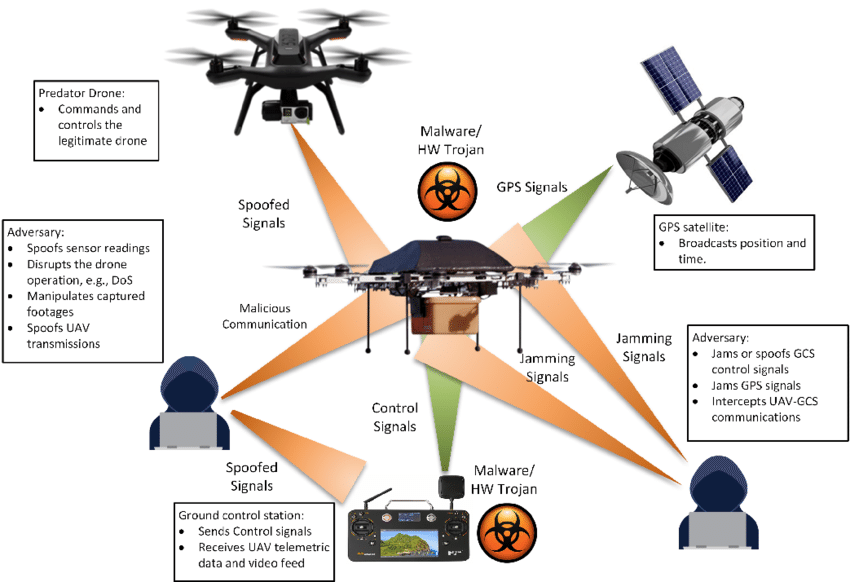As our world becomes increasingly reliant on technology, the threat of cyberattacks continues to evolve and expand. One area of particular concern is the vulnerability of Global Positioning System (GPS) technology to various forms of cyber threats. At Globals, we have been closely monitoring the rise in GPS-related cyberattacks and their potential impact on industries and individuals alike.
Understanding GPS Vulnerabilities
GPS technology is used in a wide range of applications, from navigation systems in vehicles and aircraft to precision timing in financial transactions and power grids. However, the weak signals transmitted by GPS satellites make them susceptible to two primary forms of cyberattacks: jamming and spoofing.
GPS Jamming: This involves the use of a device to broadcast strong radio signals on the same frequency as GPS, effectively drowning out the legitimate GPS signals and rendering receivers unable to determine their location.
GPS Spoofing: In this attack, a malicious actor broadcasts counterfeit GPS signals that appear genuine to receivers, allowing the attacker to manipulate the reported location or time.
These vulnerabilities pose significant risks to industries that heavily rely on GPS, such as transportation, logistics, and emergency services.
Recent GPS Cyberattacks
In recent years, there has been a notable increase in reported incidents of GPS jamming and spoofing across the globe. Some notable examples include:
- In 2017, over 20 ships in the Black Sea reported GPS interference, with their navigation systems showing false locations.
- Widespread GPS spoofing activities between 2016 and 2018 were reported, with over 9,800 incidents affecting 1,300 civilian ships.
- In 2019, the U.S. Maritime Administration issued an alert about GPS interference incidents affecting ships and aircraft in the Middle East.
These incidents highlight the growing sophistication and scale of GPS cyberattacks, as well as their potential to disrupt critical infrastructure and threaten public safety.
Mitigating GPS Cyber Threats
To address the risks posed by GPS cyberattacks, organizations must adopt a multi-layered approach to security. Some key strategies include:
- Implementing GPS jamming and spoofing detection systems to identify and alert operators of potential attacks.
- Developing backup navigation and timing systems that can function independently of GPS, such as enhanced inertial navigation systems or terrestrial radio-based alternatives.
- Encrypting GPS signals and using authentication mechanisms to prevent unauthorized access and manipulation.
- Conducting regular risk assessments and penetration testing to identify vulnerabilities in GPS-dependent systems.
- Providing training and awareness programs to educate personnel on the risks of GPS cyberattacks and appropriate response procedures.
The Role of Cybersecurity Firms
As the threat landscape continues to evolve, cybersecurity firms like Globals play a crucial role in helping organizations navigate the challenges of protecting their GPS-dependent systems. By providing expert guidance, advanced threat intelligence, and innovative security solutions, we empower our clients to stay one step ahead of potential adversaries.
To learn more about how Globals can help secure your organization against the growing threat of GPS cyberattacks, schedule a free consultation call with our team of cybersecurity experts. Our specialists will assess your current security posture, provide tailored recommendations, and guide you through the process of implementing robust security measures to safeguard your GPS-dependent systems and data.


